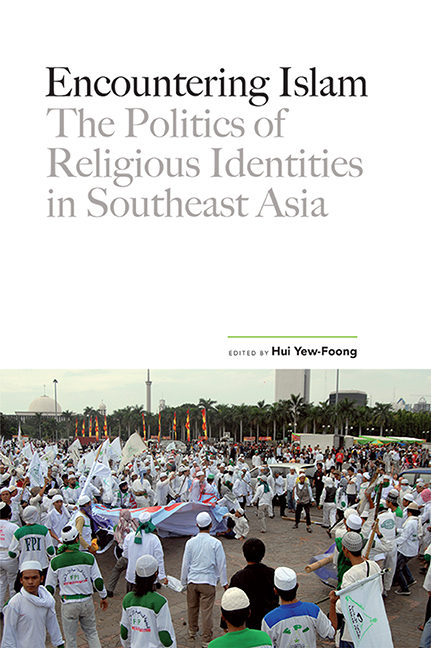Book contents
- Frontmatter
- Contents
- Acknowledgements
- Contributors
- Part I Introduction
- Part II Islam across Borders
- Part III Malaysia
- Part IV Indonesia
- 8 Natsir and Sukarno: Their Clash over Nationalism, Religion and Democracy, 1928–1958
- 9 Religious Freedom in Contemporary Indonesia: The Case of the Ahmadiyah
- 10 Religion and the Politics of Morality: Muslim Women Activists and the Pornography Debate in Indonesia
- Part V Muslim Minorities
- Index
9 - Religious Freedom in Contemporary Indonesia: The Case of the Ahmadiyah
from Part IV - Indonesia
Published online by Cambridge University Press: 21 October 2015
- Frontmatter
- Contents
- Acknowledgements
- Contributors
- Part I Introduction
- Part II Islam across Borders
- Part III Malaysia
- Part IV Indonesia
- 8 Natsir and Sukarno: Their Clash over Nationalism, Religion and Democracy, 1928–1958
- 9 Religious Freedom in Contemporary Indonesia: The Case of the Ahmadiyah
- 10 Religion and the Politics of Morality: Muslim Women Activists and the Pornography Debate in Indonesia
- Part V Muslim Minorities
- Index
Summary
This chapter explains the controversy over the legal status of the Islamic Ahmadiyah sect, put into the larger context of the question over religious freedom and tolerance in today's Indonesia. It covers the disproportional influence of Islamist civil society groups on the Susilo Bambang Yudhoyono government and the government's intervention in religious and social affairs despite Indonesia supposedly being a secular state. It argues that in dealing with the Ahmadiyah issue, the government has been yielding to Islamist pressure because of concern with a backlash from the Muslim electorate. It also suggests that the deeper cause for the problems of the Ahmadis are the inconsistencies within Indonesian law, which is not clearcut and absolute in its protection of religious freedom as is often erroneously claimed. It further highlights that most Muslim leaders from mainstream Muslim organizations tend to be firm in supporting those laws inimical to full religious freedom and legal recognition for Ahmadiyah.
Ahmadiyah (full name: Ahmadiyya Muslim Jama'at [Ahmadiyah Muslim Community], also known as Qadiyaniah) is a religious movement founded by Mirza Ghulam Ahmad (15 February 1835–26 May 1908) in Qadian in Punjab, India, in 1889. Like mainstream Islam, Ahmadiyah teachings are based on the Qur'an and the Hadith (account of the words and deeds of the Prophet Muhammad). Like mainstream Muslims, Ahmadis observe the five pillars of Islam: the belief in a single creator and Muhammad's prophethood, the five daily prayers, alms, fasting and — in theory — the pilgrimage (Ahmadis are banned from visiting Mecca in Saudi Arabia). Ahmadiyah has a central authority in Caliph Mirza Masroor Ahmad. He is based in London and the fifth successor of Mirza Ghulam Ahmad.
The main issue that separates Ahmadis from other Muslims is the question of whether there can be other prophets after Muhammad. Mirza Ghulam Ahmad claimed to have fulfilled the Qur'anic foretelling of the return of Jesus Christ and the world reformer at the end of times (known as the Mahdi, literally “The Guided One”). The Qur'an, verse 61:6, speaks of a successor to Muhammad, whose name is Ahmad. The question of prophethood is the main reason that Islamist conservatives and many mainstream Muslims perceive Ahmadiyah as a distinctive faith outside Islam.
- Type
- Chapter
- Information
- Encountering IslamThe Politics of Religious Identities in Southeast Asia, pp. 218 - 246Publisher: ISEAS–Yusof Ishak InstitutePrint publication year: 2012

